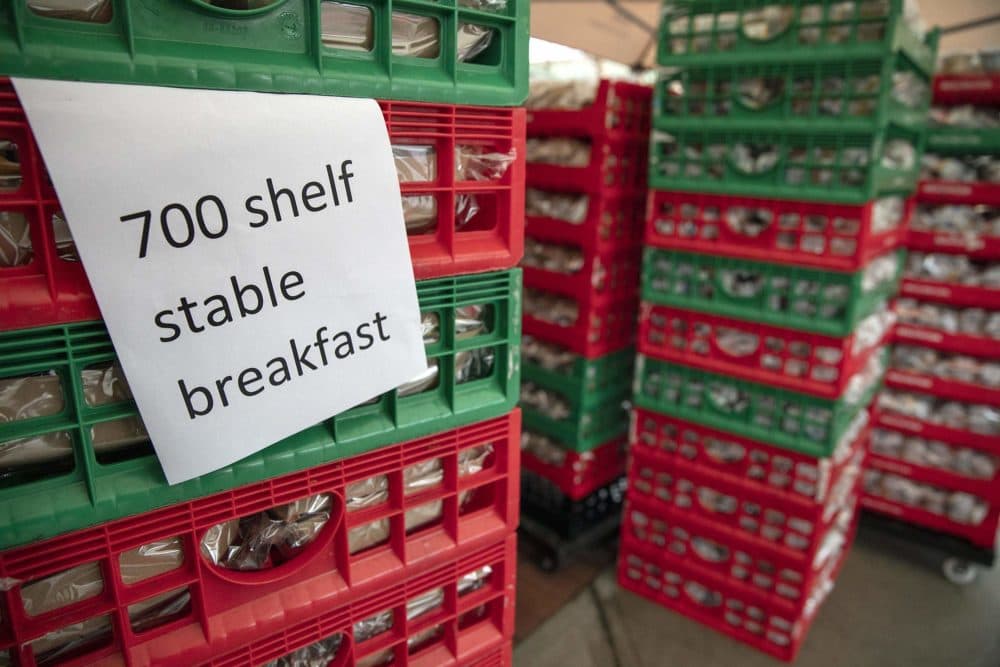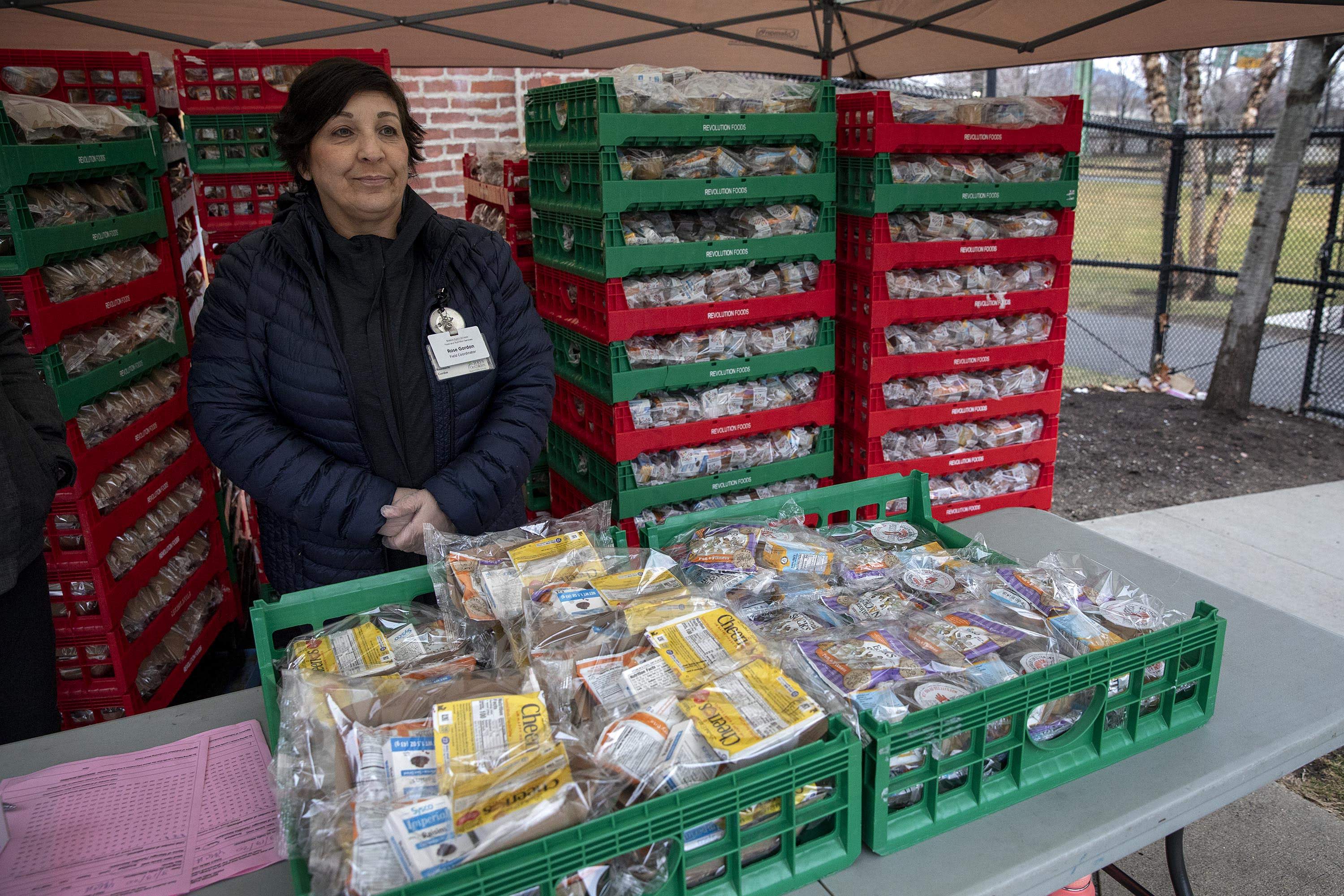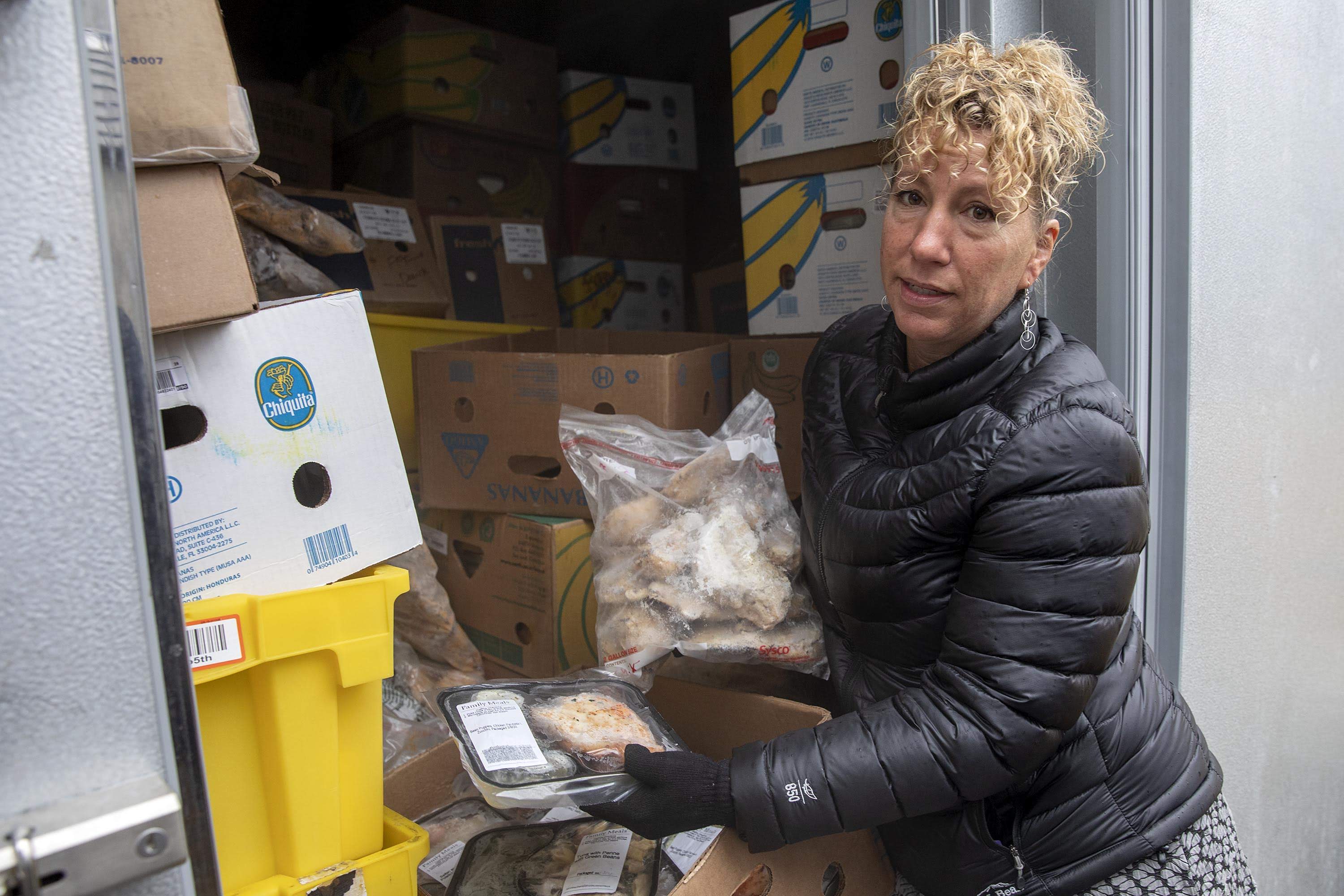Advertisement
With School Closures, A Scramble To Get Food To Students In Need
Resume
As schools in Massachusetts prepare to close over coronavirus concerns, there are major efforts underway to ensure students can still access meals if they need them. Right now, some 300,000 students in the state rely on the free and reduced-price lunch program for about half of their daily nutrition.
Boston Public Schools began its food distribution program on Friday to serve kids from the Eliot K-8 school, the first BPS school to close. The district has now announced plans to close all of its schools as of Tuesday, and they will remain closed for more than a month.
On Friday, the district set up four food distribution locations including one at the East Boston YMCA.

"So we have cereal today, we have some raisins and we have some crackers for the kids. That’s for breakfast," said Rose Gordon, who works with the district’s food and nutrition program. All of the meals come in plastic bags with pre-packaged food that won’t go bad. By around 8 a.m. on Friday, Gordon hadn’t seen any families yet, but she said that’s not surprising.
"It’s probably going to be a bit slow today. I think the word needs to get out," she said.
She explained that the district had to work fast to get the delivery sites set up. Most of the plans were organized and carried out in about a day. Right now, a lot of districts are in the same boat, making last minute plans to make sure they can continue to serve students.
"[Last] week is, I think, when everyone really started to recognize the pending crisis. And really starting to think how are we going to operationalize this," said Erin McAleer, the president of Project Bread, an anti-hunger organization that’s helping districts across the state work through logistics.
She said many school systems are planning to make and distribute take-home meals from their cafeterias. Still, there are a lot of details to figure out.
"They know how to run these programs," she said. "It’s more just like the mechanism of who is staffing it, and how do they provide the to-go meals versus the hot meal in the cafeteria."
While the state only recently began seeing schools announce prolonged closures, she said her organization has already experienced an uptick in calls to a hotline which helps families find resources like SNAP benefits (Supplemental Nutrition Assistance Program) or food pantries.
"We’re already seeing an influx in people calling us who have lost out on job opportunities over the last few weeks. So that alone is going to be a major crisis," McAleer said.
In Cambridge, the organization Food For Free is quickly working to make updates to its programming. Typically, the group offers weekend meals for grade school students and targets community colleges and adults taking English language courses.
"Our freezer is particularly chaotic at the moment because things have changed quickly and we’re not being able to move the food as quickly," said Sasha Purpura, the group’s executive director.

Food for Free has been hit from multiple angles. Much of the food the group distributes comes from college dining halls, most of which have now closed. Then its kitchen was taken out of service because it was housed at BioGen, the Cambridge biotech company whose recent conference is linked to most of the state’s coronavirus cases.
Still, Purpura says, the group is determined to get food to families who need it. Right now she's working out plans with the cities of Cambridge and Somerville to coordinate new strategies for food distribution.
"Our folks will lead volunteers in packing up grocery bags and bringing them to people’s doors," Purpura explained. "And we’re going to check in with the health department to make sure we have the safest methods for doing this."
Luckily, volunteers have not been hard to come by. They’ve been stepping forward, she said, by the hundreds.
This article was originally published on March 15, 2020.
This segment aired on March 16, 2020.
